Episode 2083: Judged by Charity: Navigating Life's Spiritual Terrain
Welcome to another episode of Sacred Truths, where we explore the timeless wisdom of the Catholic faith. Today we embark on a journey into the depths of our souls, guided by the profound insights of St. John of the Cross and Father Jeffrey Kirby.
St. John of the Cross, a mystic and Doctor of the Church, once said, “At the end of our life we shall be judged by charity.” What a striking statement! It reminds us that our ultimate assessment is not based on worldly achievements or possessions, but on the depth of our love for God and others. But what does it mean to be judged by charity?
St. John of the Cross's quote, "At the end of our life we shall be judged by charity," holds profound significance in traditional Catholic theology. Let's break it down from a traditional Catholic perspective:
Judgment: In Catholicism, judgment refers to the final assessment of each person's life by God. It is the moment when we are held accountable for our thoughts, words, and deeds.
End of Our Life: This phrase emphasizes the eschatological dimension, meaning it pertains to the end times or the final destiny of humanity. It underscores the belief in life after death and the eternal consequences of our earthly actions.
Charity: In traditional Catholic teaching, charity (or love) is considered the greatest virtue. It encompasses love for God and love for neighbor. It's not just about benevolent actions but also about the orientation of the heart toward God and others. Charity involves selflessness, compassion, and a genuine desire for the well-being of others.
So, when St. John of the Cross says, "At the end of our life we shall be judged by charity," he is suggesting that our ultimate judgment will be based on the love we have shown to God and to others throughout our lives. It's not merely about following rules or performing religious rituals, but about living a life guided by love and compassion, mirroring the selfless love of Christ. This quote serves as a reminder of the central importance of love in the Christian life and underscores the eternal significance of how we choose to love during our earthly journey.
Let’s turn to Father Jeffrey Kirby, who beautifully articulates the relationship between our physical and spiritual needs. But let me provide you with background on Fr. Kirby.
Father Jeffrey Kirby is a Catholic priest, author, and theologian known for his inspirational writing and pastoral work. While I can't provide an up-to-date biography, here's a summary of his background up to my last update:
Father Jeffrey Kirby was born in 1977 in the United States. He was ordained a priest for the Diocese of Charleston, South Carolina, and has served in various pastoral roles within the Church. He holds a doctorate in moral theology and has a passion for teaching and sharing the Catholic faith.
Father Kirby has authored several books on topics ranging from spirituality to theology, aimed at helping people grow in their faith and deepen their relationship with God. Some of his notable works include "Kingdom of Happiness: Living the Beatitudes in Everyday Life" and "Thy Kingdom Come: Living the Lord's Prayer in Everyday Life."
In addition to his writing, Father Kirby has been involved in evangelization efforts, speaking engagements, and teaching at both the parish and academic levels. He is known for his clear and engaging communication style, which makes complex theological concepts accessible to a wide audience.
Throughout his ministry, Father Kirby has been committed to serving the spiritual needs of others and guiding them on their journey of faith. He continues to inspire and educate through his writing, preaching, and pastoral care.
He reminds us that just as our bodies require sustenance to thrive, our souls also long for nourishment. This longing, he explains, is our innate desire for God, often referred to as the "God hole" within us. Despite our attempts to fill it with worldly pleasures, only a relationship with God and acts of genuine religious devotion can satisfy this deep yearning.
"Every human person consists of both a body and soul. Just as our body needs things to survive and grow, such as oxygen, water, food, etc., so our soul needs things as well, such as faith, hope, and love. These spiritual longings point to the truth that every human person has a natural desire for God. The human person is a spiritual person, and we all interiorly desire the relationship that God offers to us. In our lives and in our culture, we can find several apparent goods to try and fill the capax Dei, which is our capacity for God, oftentimes simply called the "God hole" within us. But, try as we might to fill it with other things, this interior desire can only be completely fulfilled by a relationship with God, and by acts of religion that bind us to him."
Let's break down the quote from a traditional Catholic perspective:
Body and Soul: In traditional Catholic theology, humans are understood to consist of both a physical body and an immortal soul. This view is rooted in scripture and has been affirmed by Catholic theologians throughout history.
Human Needs: Just as the body has physical needs like oxygen, water, and food for survival and growth, the soul also has spiritual needs. These spiritual needs are described as faith, hope, and love. This reflects the Catholic understanding of the importance of spiritual nourishment for the well-being of the individual.
Natural Desire for God: According to Catholic teaching, every human person has a natural desire for God. This desire is innate and reflects humanity's longing for ultimate fulfillment and union with the divine.
Capax Dei (Capacity for God): The Latin term "capax Dei" refers to the capacity for God within every human being. This concept suggests that humans have a built-in inclination or receptivity towards God, often referred to as the "God-shaped hole" within us.
Attempts to Fill the God Hole: In the absence of a relationship with God, humans may seek to fill this innate desire with other things, such as material possessions, power, pleasure, or various ideologies. However, these attempts ultimately fall short of providing true and lasting fulfillment.
Complete Fulfillment in God: The quote emphasizes that only a relationship with God and acts of religion can completely fulfill the innate desire for God within us. In Catholic theology, it's through the sacraments, prayer, and participation in the life of the Church that this longing for God finds its ultimate satisfaction.
Overall, from a traditional Catholic perspective, this quote underscores the belief in the holistic nature of the human person, the innate longing for God, and the ultimate fulfillment found in relationship with the divine.
Now, let’s delve into the scripture reading from the Gospel of Luke. Jesus tells us, “I tell you, my friends, do not be afraid of those who kill the body but after that can do no more. I shall show you whom to fear. Be afraid of the one who after killing has the power to cast into Gehenna; yes, I tell you, be afraid of that one.” These words may sound ominous, but they remind us of the importance of prioritizing our spiritual well-being above all else. In a world filled with distractions and temptations, we must remain vigilant in nurturing our relationship with God, for He alone has the power to grant us eternal life.
So, how do we navigate life’s spiritual terrain in light of these profound teachings? It begins with cultivating a heart of charity, selflessly loving God and our neighbors. It involves recognizing our innate longing for God and seeking fulfillment in Him alone. And it requires courageously embracing our faith, even in the face of adversity, knowing that our ultimate destiny lies in His hands.
As we conclude today’s episode, let us reflect on the words of St. John of the Cross, Father Jeffrey Kirby, and Jesus Himself. May we strive to live lives rooted in charity, nourished by our relationship with God, and guided by the fear of the Lord. Thank you for joining us on this journey of faith. Until next time, may God bless you abundantly. Now go out there and convert somebody.
-
 28:40
28:40
CatholicReboot
1 month ago $0.03 earnedEpisode 2114: Embracing God's Will Humility and Trust
147 -
 21:51
21:51
CatholicReboot
1 month agoEpisode 2072: Recognizing the Divine: Devotion, Presence, and Perseverance
170 -
 40:12
40:12
eyesonjesuspodcast
1 month agoEpisode 49: Yes to change- Navigating rebranding in ministry and personal life #rebranding
33 -
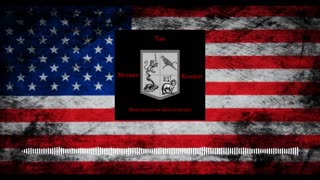 31:50
31:50
The Modern Knights
1 month agoThe Modern Knights Episode 14 God's Law
201 -
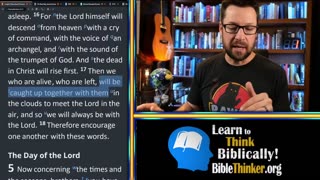 1:21:14
1:21:14
Handinhandwithgodtv
1 month ago10 Questions with Mike Winger (Episode 13)
8 -
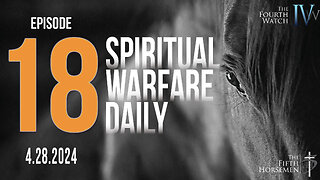 1:31:26
1:31:26
TheFourthWatch
1 month agoSpiritual Warfare Daily - Episode 18: 4.28.2024 - Your motives matter
179 -
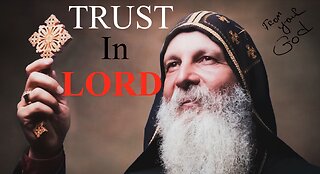 1:03:30
1:03:30
UnityLightMinistries
1 month agoTrust in Lord | Seek the Wisdom of the Holy Spirit | Bishop Mar Mari Emmanuel
891 -
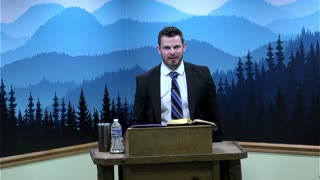 1:25:12
1:25:12
ArtBaptist1611
1 month agoOverview of Judges | Pastor Jason Robinson
41 -
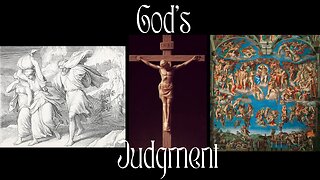 28:14
28:14
The Modern Knights
1 month agoThe Modern Knights Episode 12 God's Judgement
29 -
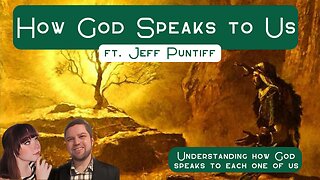 1:06:34
1:06:34
Finding the Faith with Freda
1 month agoHow God Speaks to Us ft. Jeff (Finding the Faith S. 2 Ep. 21)
225